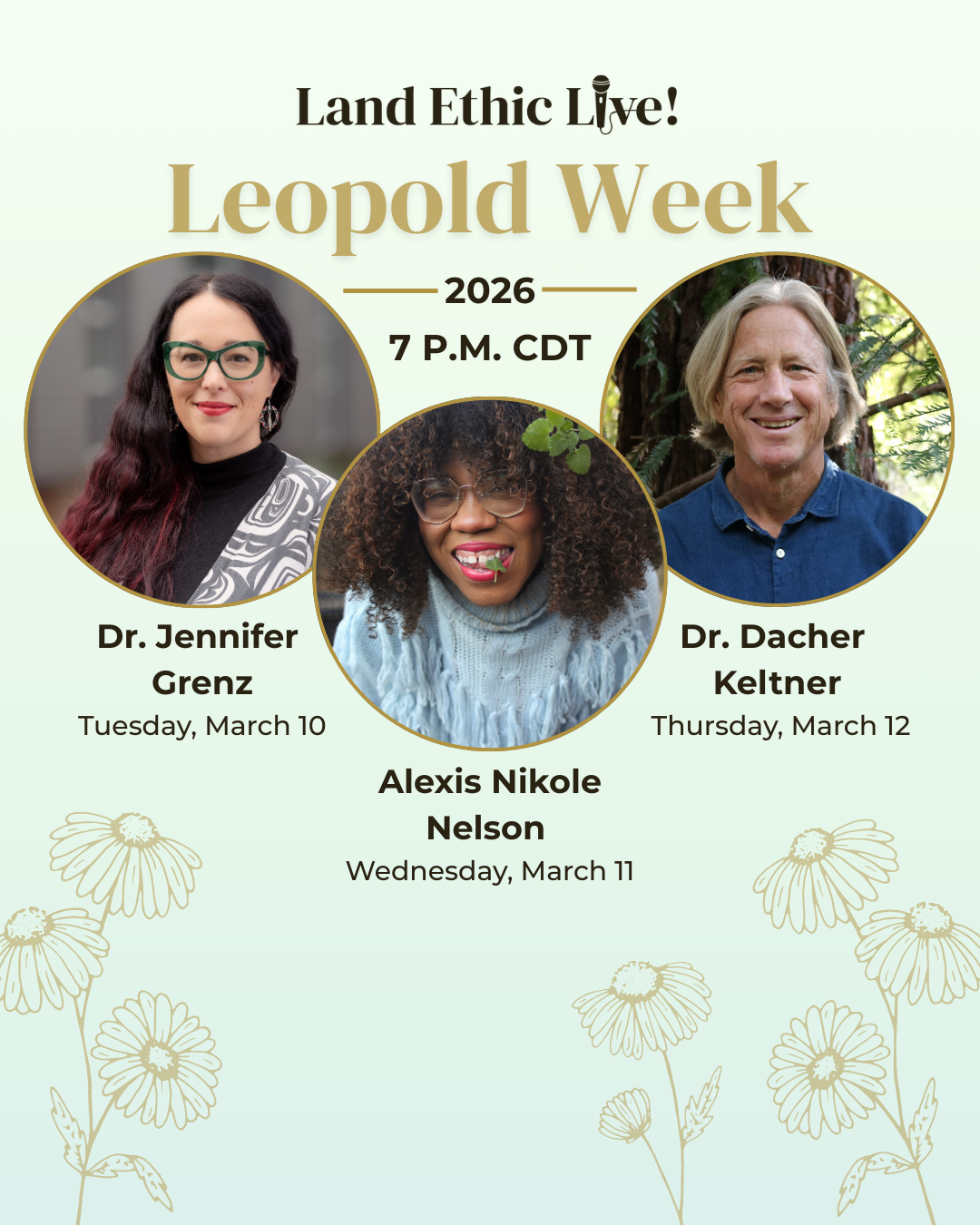Nature needs YOUR land ethic!
Stay connected through our down-to-earth e-news.
Browse our upcoming events to find the latest opportunities to gather and learn. Each event offers a unique opportunity to connect with like-minded individuals and immerse yourself in the world of conservation.
Join us this March for Leopold Week 2026—a virtual speaker series featuring Dr. Jennifer Grenz, Alexis Nikole Nelson, and Dr. Dacher Keltner. Together we will explore the places, practices, and people that can help us heal ourselves and the Earth.
March 10 – Connection
Tune in for a presentation and conversation with Dr. Jennifer Grenz (@jennifer_grenz), assistant professor and Indigenous Scholar at the University of British Columbia and author of the best-selling book Medicine Wheel for the Planet: A Journey Toward Personal and Ecological Healing. Grenz will share fascinating stories from her work to address environmental challenges like wildfire recovery and food security alongside Indigenous knowledge keepers and community members, highlighting how connecting Western and Indigenous sciences can both heal the land and the communities who depend on it.
March 11 – Nourishment
Hear from chef, forager, and influencer Alexis Nikole Nelson (@TheBlackForager) who shares the joy of foraging the wild foods, medicines, and fibers found right in our own neighborhoods. In Nelson’s eyes, foraging not only helps us supplement our diets with nourishing, accessible foods, but also connects us with the land we live on and the people who have been cooking with wild foods for centuries. Learn how to start snacking for free in your own backyard and be a good steward along the way!
March 12 – Awe
Join a conversation with Dr. Dacher Keltner, a leading scholar in the study of emotions and author of Awe: The New Science of Everyday Wonder and How It Can Transform Your Life. Keltner will share how experiencing awe in nature—whether looking out at a stunning vista or simply watching an interesting bird—can make us happier, kinder humans and better stewards of the land.


